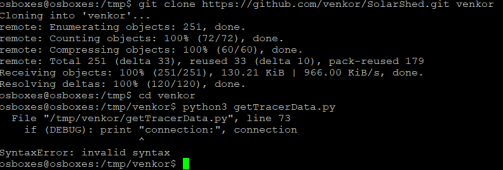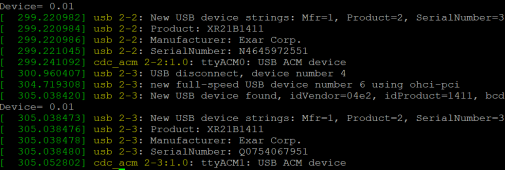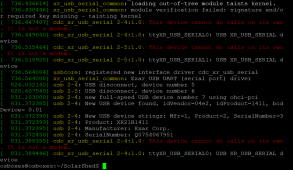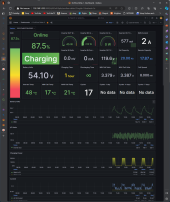Ok, next step is: you disconnect the USB device, then reconnect it. After that, look at the last lines of the 'dmesg' command. There should be something along the lines of "new device... /dev/tty..." or something. The /dev/ttyxxxx is the one you need to put into the script on line 59 which looks like:
Code:
client = ModbusClient( method = 'rtu',
port = '/dev/ttyXRUSB0',
baudrate = 115200,
stopbits = serial.STOPBITS_ONE,
parity=serial.PARITY_NONE,
bytesize = 8,
timeout=2)
If 'dmesg' doesn't have a /dev/tty... line we need to
install the driver. I'll get back to you on that later today; I can precompile that one for you since you're using my doc anyway, so we should have the same system. Just in case, let me know what the command 'uname -a' prints out.












